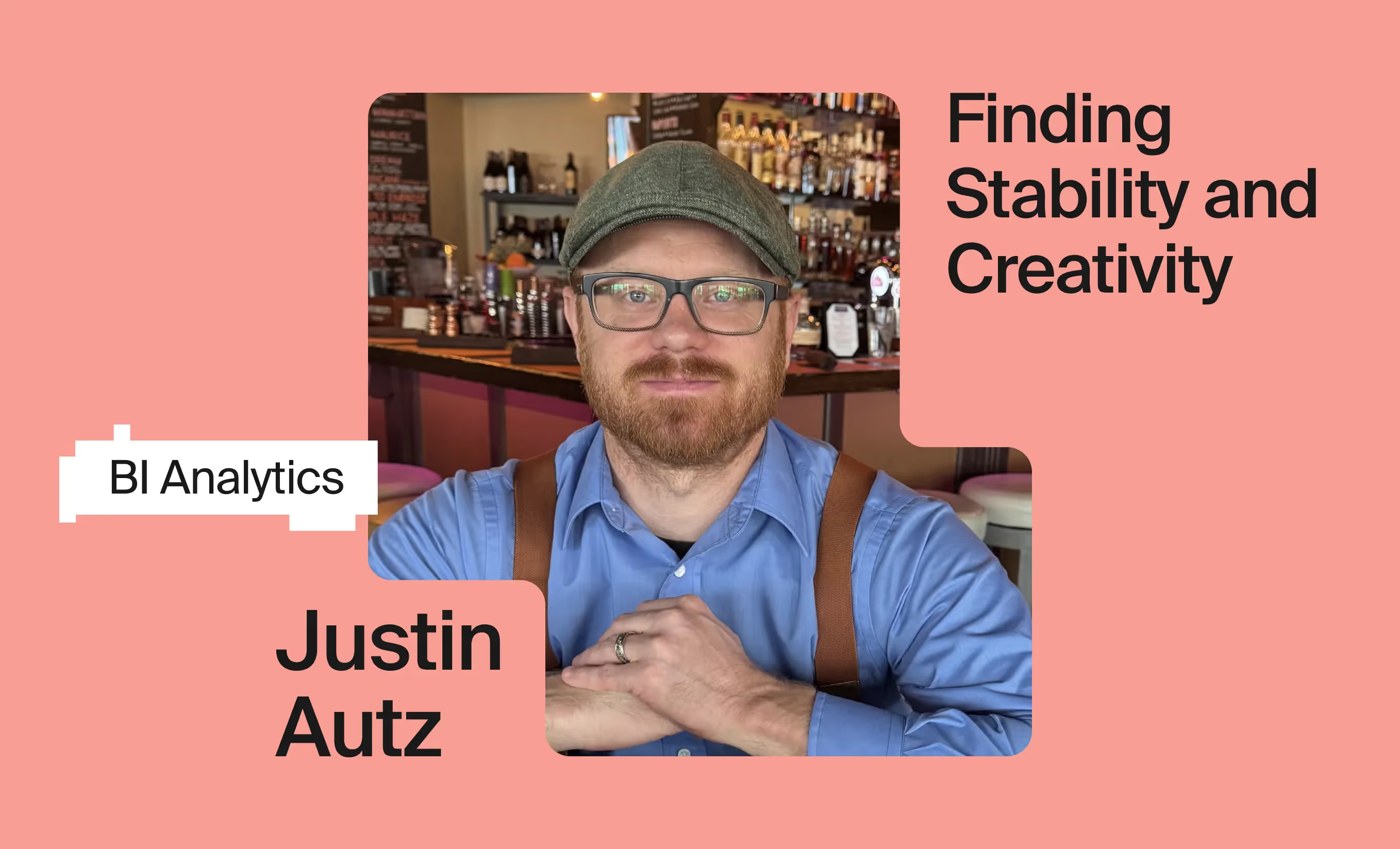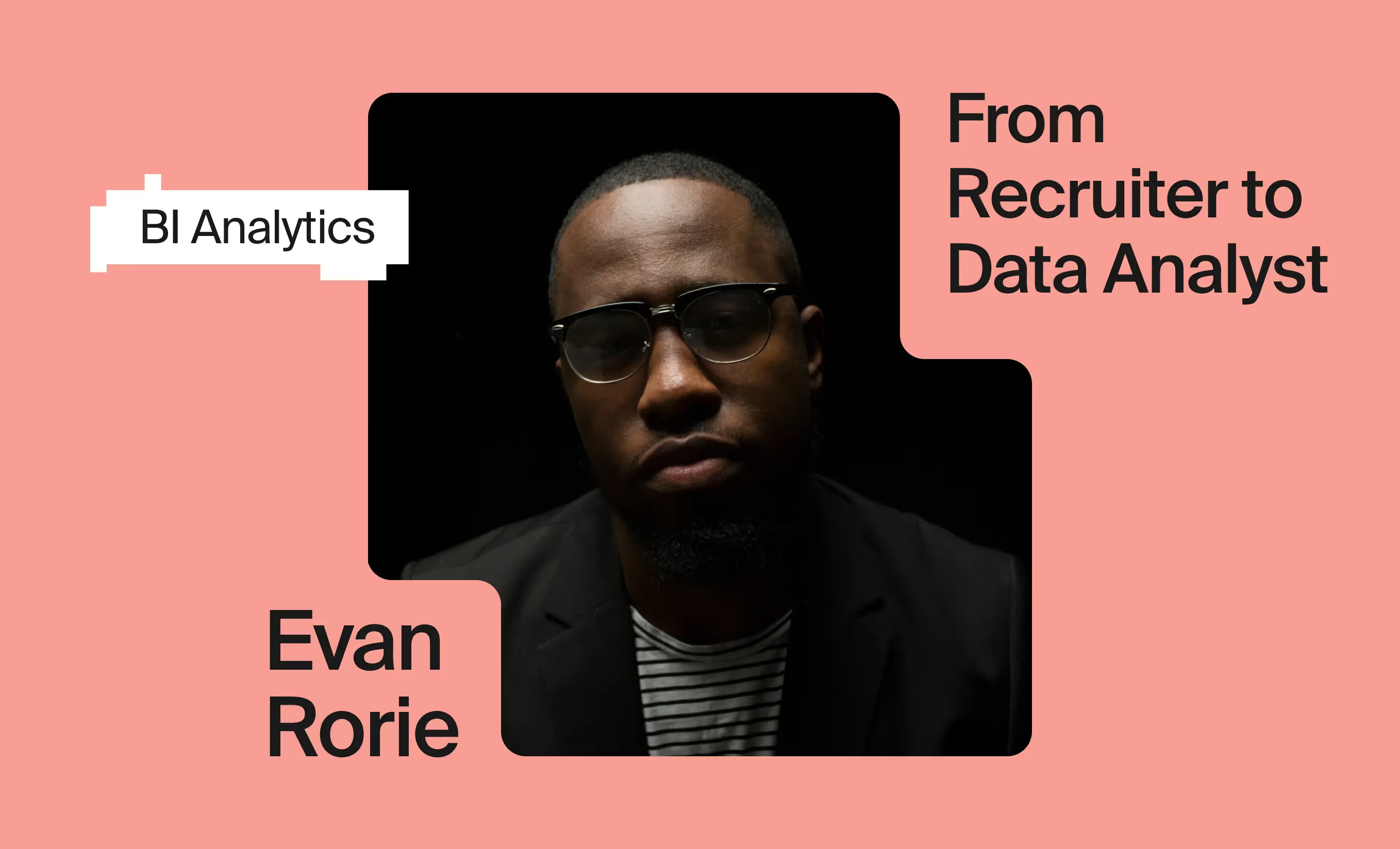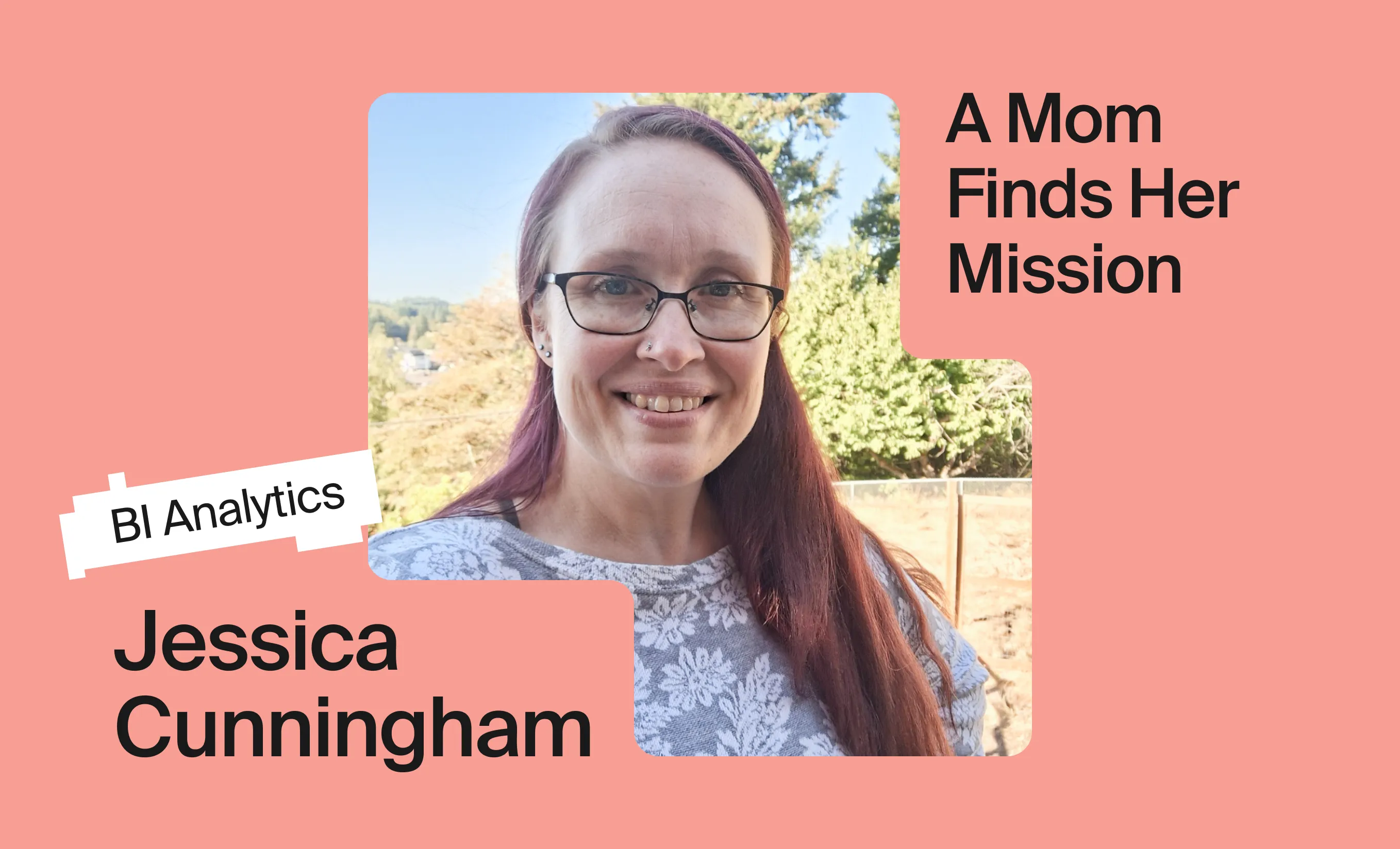You know the typical hallmarks of a toxic workplace: micromanagement, no work-life balance, a stalled career. None of it is acceptable. But then there are workplaces that engage in literal toxicity, too.
Brandon Adam knows what it’s like to experience both types. Not only was he hitting a professional ceiling after taking on diverse cannabis industry jobs, but he was also being asked to engage in unethical practices — specifically, using chemicals that could harm people. It was a metaphorically toxic demand to spray something that was literally toxic.
So he knew he needed to find a new path. Here’s how he launched a non-toxic, fulfilling career with the help of TripleTen.
A cannabis industry job: More than disillusionment
Brandon went to college for sustainable tourism, but wasn’t convinced of its prospects. “I realized that turning that into a lucrative full-time job was going to be a little bit more difficult than I probably anticipated,” he said.
That led him to reflect on where he could go instead. He wanted to work in a field he was passionate about, and he ultimately decided to get into the cannabis industry. He started out with an internship at a corporate cannabis company in Washington, and appreciated the introduction to the cannabis business. “That was a great experience,” he said. “I had a lot of fun, learned a lot.” So he dove into a career in cannabis: “I pretty much had every single job in the cannabis industry you could imagine.”
Then two things happened. First, that wealth of knowledge he built up could only take him so far. “I hit a ceiling in my career and I realized that the only way to the top in that line of work is if you owned [a company],” he said. Second, his director of cultivation gave him tasks he couldn’t square the morality of: “They had me spraying a whole bunch of stuff all over the plants, like stuff that you would not want to be smoking.”
You don't want to contribute to something that can harm other people. In fact, you want to do the opposite. So that was my breaking point, and I was like, ‘All right, I can't be doing this anymore.’ Brandon Adam, TripleTen grad
But where next? Well, he enjoyed gaming, and was even building his own version of Pokemon Emerald using an RPG maker, so tech seemed like a good choice. TripleTen came up in an Instagram post, and he checked the bootcamp out. He liked what he saw.
“TripleTen’s lesson plan and how everything was broken down were the deciding factors because I thought it [would give me an] excellent foundation,” he said. “I knew with the lesson plan that was laid out, I could build upon what I was going to be taught and it would give me an advantage to go into what I was trying to go into at the time.”
Not only that, but even though smaller, shorter courses seemed more accessible, he saw a hidden flaw. They were self-led, but he was no expert yet. That meant he wouldn’t even know if the courses he chose were the right ones. And he didn’t have the room for the mistakes that might incur: “I was working full-time at the time, so I didn't want to have to create a lesson plan for myself about something I wasn't super knowledgeable about and then also have to grind that and hope that I was going in the right direction.”
Clear about his need for a professional transformation and that TripleTen could be a valuable partner in that journey, he enrolled.
Putting in the work to power the pivot
The start of the Software Engineering program was a shock, but it was exactly what he was looking for.
The first three sprints were unbelievably difficult because I had no prior experience whatsoever. But it was also very refreshing. Brandon Adam, TripleTen grad
He’d been doing the same things the same ways for years, getting bored, feeling unchallenged, but that ended when he started studying with TripleTen. His craving for knowledge was being met with catered, specific instruction. Now, because the material was so new, there were peaks and troughs as he struggled with mastering it all. While the troughs were difficult, the peaks were exhilarating.
“I was angry a lot, but it wasn't a negative anger. It was like a happy frustration because you're eventually going to get it, but you have no idea what the time window is,” he said. “In the moment you're like, ‘This is the dumbest thing ever.’ And then you're in the shower three hours later and you're like, ‘What if I did that?’ And you're like, ‘My god, that's it.’ And then you go do it, and it works, and you're like, ‘Now I'm a genius again.’”
One specific element that challenged him were functions — specifically, how to use parameters in them. But he stuck to it, and his dedication was worth it when they finally clicked. “When you figure out parameters, your life gets a hundred times easier,” he said.
For him, this rollercoaster of emotions did smooth out over the bootcamp, though. “The further you go into the program, the smaller the jumps are,” he said. “You know what you’re doing, so you’re making less ridiculous mistakes… You’re doing things that are more advanced.”
And reflecting on it, even though he had a real sense of triumph when learning the technical know-how, the capability he gained at TripleTen and still values most had nothing to do with HTML or JavaScript: “Honestly, you would think it would be some sort of tangible skill, [but it's] your ability to keep an open mind and realize that you don't know everything.”
This new mindset was valuable when his first idea for a final project fell through. See, he was already deep into building a piece of software when he realized he’d made a workflow error that would ultimately end up costing him $100 a month in API calls.
It was a bummer, but he remembered that Pokemon project he’d been working on, and — good news — the PokeAPI didn’t charge for calls. With that, he revamped his final project and instead made a Pokedex, a tool describing all the game’s creatures’ abilities and characteristics.
With his new know-how, he built the whole thing in just two hours and submitted it the same day. And it proved he knew his stuff: “[The reviewers] were like, ‘It's actually fine right now, but if you want to go back and fix these things, they're just formatting things.’”
He’d aced the learning. Now it was time to land the job.
Breaking through with a new IT career
Brandon was just as driven. He sent in roughly 150 applications, making sure he chose each one intentionally. “Applying willy-nilly is a terrible idea,” he said. “You’re gonna have to apply for jobs that you actually want to work for [because] you’re gonna have to explain to that company why you want to work for them.”
It wasn’t a quick process, but he did get some hits. And when he linked up with the right company, going from that first conversation to the offer took no time: “It was incredibly fast. It all happened in the span of a week.”
In the first interview, he was clear about where he came from and confident. “I was like, ‘Hey I'm out of a bootcamp. I have x amount of coding experience. These are my projects, my GitHub, all the stuff I've done, plus here's my resume from all the other work plus education that I have.’”
It was convincing — enough so that they didn’t even ask him for a test task: “Based on my projects, they were pretty confident in my coding ability.”
He met the team in the second interview, after which he was offered the job in-person.
Now, he’s a Technical Support & Software Applications Specialist for Traxxis GPS Solutions, Inc., a telematics and GPS tracking company. “Really, really interesting stuff going on,” he said. “I mean, it tracks literally everything. Any metric you could imagine, we track it.”
In this job, he’s no longer bumping against a professional ceiling. Instead, he’s gaining new knowledge and applying it as a matter of course.
I definitely get to use 100% of my brain each and every day. Brandon Adam, TripleTen grad
And he’s crucial to the company’s operations. “I'm the guy they call when their things aren't tracking or they can't view their cameras or it's not uploading video or they can't pull exceptions for something. I'm the guy that goes in and is like, ‘All right, let me fix this for you,’” he said.
But it’s more than just the work that’s changed. The culture is totally different, too. When asked about these differences, he replied with an amused smile, “That’s a loaded question. I mean, I worked in the cannabis industry. Everyone’s high all the time.”
“I’m not hating on anyone in the cannabis industry,” he clarified. “But let’s just say a lot of those people are very laid-back individuals. It’s a nice change of pace to be working with people who genuinely have a drive.”
He’s found what he was looking for. “I’m a hundred times happier,” he said. “Now that I have my new job, I'm not angry at work anymore and I don't have any ethical concerns about what I do.”
Follow his lead



-p-800.avif)












